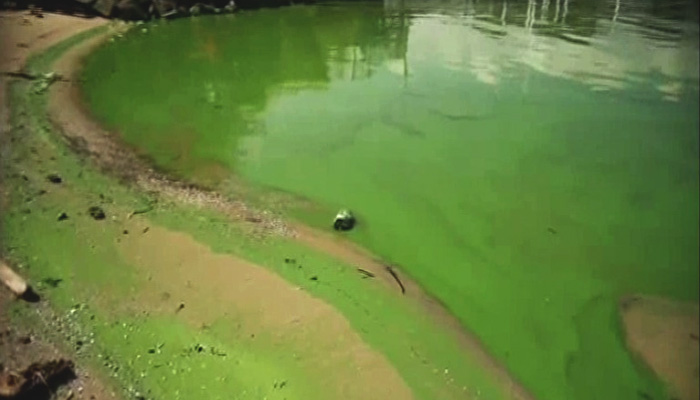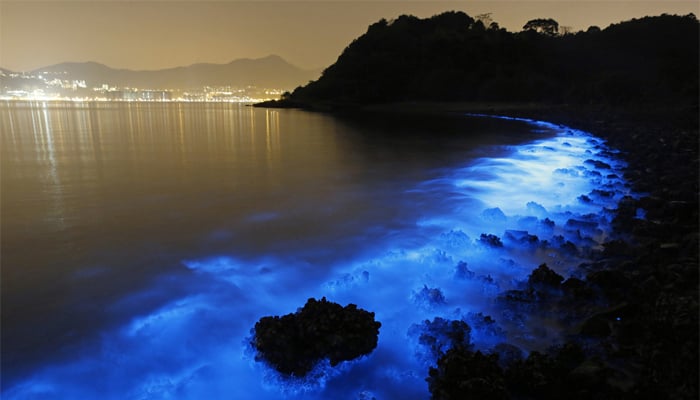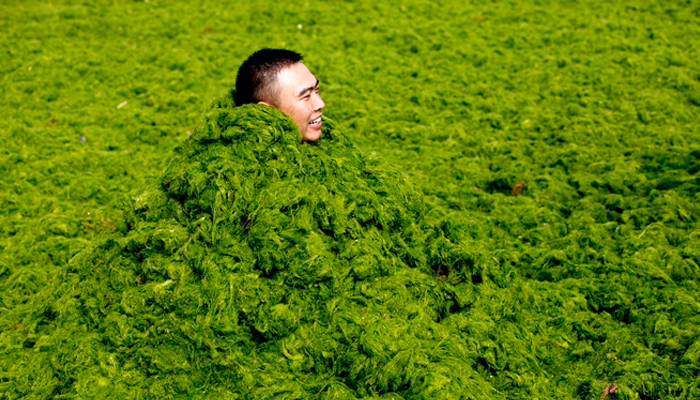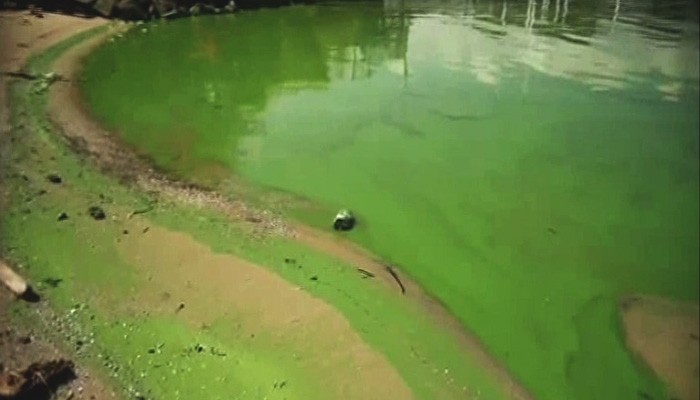Dying sea sparkle caused stench that Karachi experienced two days back
“The bloom of this microcosm sometimes turns poisonous, killing marine life […] but nothing of the sort has happened near Karachi’s shore”
June 03, 2017

What was the real reason behind the stench that filled Karachi a couple of days ago? While no governmental investigative agency has an explanation, the answer lies in marine life and ecological system.
World Wide Fund (WWF) — an organisation that works to promote a better, healthier environment — claims the stench spread due to dying noctiluca, commonly known as sea sparkle.
An unpleasant, overpowering odour pervaded throughout the metropolis, especially its coastal areas, on May 31 and every Karachiite talked about the mysterious smell that day.
According to Dr. Nuzhat Khan, the Principal Scientific Officer at the National Institute of Oceanography (NIO), oil that spilt into the sea led to the stench, BBC Urdu reported. In this regard, her team is conducting further research as well.

However, the Government of Sindh’s Environmental & Alternate Energy Department has expressed indifference towards the matter.
“Our department does not have the adequate tools to gauge, explore and understand what is going on in the sea that is releasing this smell,” Dr Ashiq Langah, the institute’s director for Karachi, told the publication.
In addition, WWF Technical Adviser Muhammad Moazzam Khan said open waters are host to marine-dwelling species noctiluca, which is found near Arabian Sea coast from Oman to Karachi. The sea sparkle is in such a huge number that they can turn the water green.
According to Moazzam Khan, the sea sparkle was present in the Arabian Sea since three to four months and just as southwestern monsoon winds started blowing in the last week of May, turning the waves violent, a large number of noctilucae died and were washed up on the shore.
Back in March, Geo.tv reported that a thriving mixture of green slime sprouting from the Gulf of Oman started to spread in the Arabian Sea, and was then inching towards the coasts of Pakistan and India.
Although the blossoming algae look pretty from afar — imitating the Mexican avocado-based dip guacamole — they suffocate marine life through the ammonia they release.
Moreover, they have a stench that may have an adverse impact on the local tourism industries. This smell is exactly what Karachi experienced a few days back.
During his career, the WWF official continued, he has never witnessed such a huge number of noctilucae deaths – and, of course, the resulting odour.
“The bloom of this microcosm sometimes turns poisonous, killing marine life — exactly like the death of shrimps in the shallow waters near Oman’s coast — but nothing of the sort has happened near Karachi’s shore,” Moazzam Khan said.
However, Dr Rashida Qari, director of University of Karachi’s Institute of Marine Science disagrees. She says the deaths of noctilucae cannot cause such strong stench and that while it can reach coastal areas, it cannot spread throughout the city.
Qari went on to say that she has never come across research that suggests these months are breeding season for sea sparkle. “However, since it is so hot, it may be possible they started breeding. Or maybe, they migrated from some other region,” she stated.

Moazzam Khan, on the other hand, mentioned that a likely possibility behind noctilucae’s deaths could be the climate change. “Nevertheless, manmade waste and pollution cannot be ignored either,” he added.
Nonetheless, sea sparkles can surface at least twice a year and potentially affect almost 120 million people engaged in the fishing industry. Even more concerning is the fact that these appearances have been uncommon in the past decade.
A researcher and microbiologist from Columbia University noted that “something dramatic" has changed in the Arabian Sea.
It is noteworthy that organisations working to further the cause of cleaner environment have time and again commented on the state of pollution in the oceans. According to their reports, apart from industrial waste, water pollution is also caused by domestic trash and garbage that is dumped into the seas.













